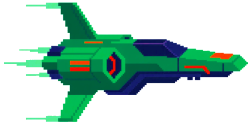Explore >> Select a destination

|
You are here |
hackingcpp.com | ||
| | | | |
gcher.com
|
|
| | | | | As of 2019, C and C++ are the only programming languages that are supported by virtually any platforms on the market. For example both iOS and android support compiling C and C++ directly as part of their official IDEs. This is one of the reason why I decided to write my voxel editor Goxel in C99: I wanted to be able to run it on Linux, Mac, Windows, iOS, and now I am working on a Android port as well. | |
| | | | |
nathanchance.dev
|
|
| | | | | Recently, I built a computer for school that I installed Windows 10 Pro on (link to the current specs if you are curious). I was a little bummed about leaving Chrome OS because I was going to lose my local Linux development environment; however, Windows Subsystem for Linux is a thing and it has gotten even better with WSL 2, as it is actually running a Linux kernel so there is full Linux compatibility going forward. | |
| | | | |
cppstories.com
|
|
| | | | | C++11 conformance GCC 4.81 - 100% Clang 3.3 - 100% Intel 14.0 - 84% Visual C++ 2013 - 66% Another year is almost over so it is a good time to check what is going on with C++. This time more stats and real data compared to my post from the previous year. | |
| | | | |
nelari.us
|
|
| | | A small look at some useful template techniques, in the context of trying to bind functions to a virtual machine. I wrote this post mostly for myself so that these techniques would be listed all in one place. | ||




